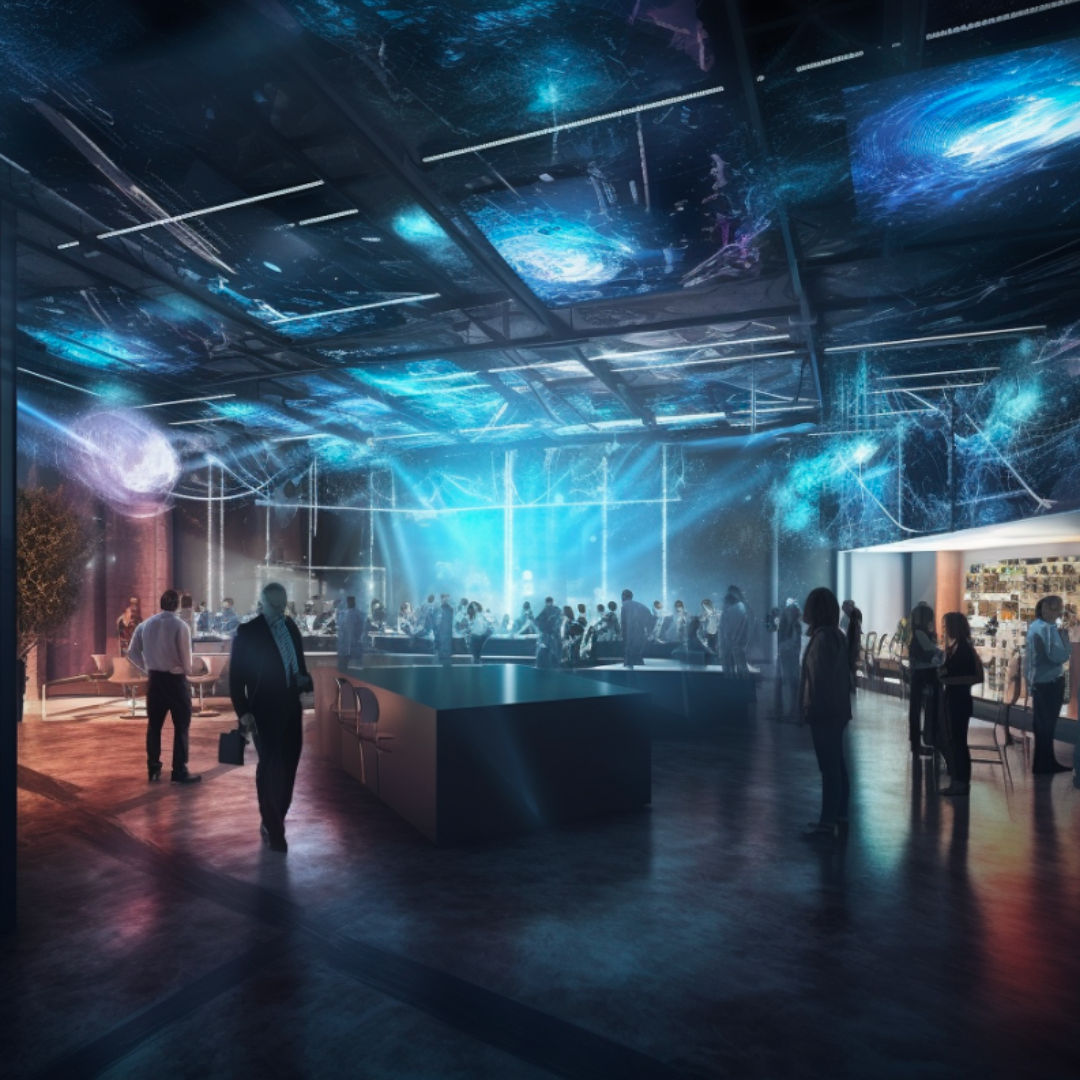In our inaugural Chronicle, we embarked on a journey of self-discovery, exploring the metamorphosis from meeting planners to Experience Architects. We discovered that the alchemy of transforming an event into an immersive experience goes beyond logistical prowess and delves into the realm of creativity. It’s about transcending the traditional and envisioning events as canvases of opportunities, waiting to be painted with vibrant hues of imagination.
However, in this age of digital transformation, creativity alone isn’t the panacea. The brushstrokes of an Experience Architect must be guided by the precision and possibilities offered by technology. As we transition from our exploration of creativity, it’s time to delve into the second Chronicle, where we uncover how technology is not just an enabler but a game-changer in the world of event planning.
Embarking on the journey from a traditional meeting planner to an Experience Architect involves more than a shift in mindset; it necessitates a mastery of the tools and technologies that can elevate events into immersive experiences…
Let’s delve into the technological blueprint that can guide you through this transformation.
Artificial Intelligence: Crafting Strategic Mastery
Artificial Intelligence stands at the forefront of this evolution, offering a suite of capabilities that transcend the conventional boundaries of event planning.
- Thematic Development and Content Strategy: AI, through Natural Language Processing and sentiment analysis, can analyze social media trends, forums, and blogs to discern popular themes and sentiments. This insight assists in curating content and themes that resonate deeply with attendees.
- SWOT and Competitive Event Analysis: AI can methodically compare similar events, evaluating engagement metrics, attendee feedback, and more. This facilitates a thorough SWOT analysis, allowing Experience Architects to understand their position in the marketplace and strategically plan their unique offerings.
- Pricing and Marketing Strategy: AI-driven algorithms can analyze past event data and market trends to optimize pricing strategies. Furthermore, AI can personalize marketing efforts, tailoring campaigns to specific demographics ensuring higher engagement.
- Press Release Development and Implementation: AI can also enhance public relations endeavors by analyzing successful press releases and suggesting optimizations in tone, content, and timing for maximum impact.
Virtual and Augmented Reality: Immersive Storytelling
Virtual Reality (VR) and Augmented Reality (AR) are powerful tools in crafting multidimensional narratives. VR can create immersive environments, transporting attendees to curated experiences, while AR can superimpose digital elements into the physical space, creating interactive and engaging settings.
Blockchain: Ensuring Authenticity and Security
Blockchain technology can play a pivotal role in attendee management by enhancing the security and authenticity of digital interactions during events, ensuring seamless ticketing, and credential verification.
Live Streaming Technologies: Global Reach and Inclusivity
Live streaming has evolved into a robust platform that fosters real-time interaction and broadens an event’s reach. It ensures remote participants actively contribute, enhancing inclusivity.
Actionable Steps to Mastery
- Continuous Learning: Experience Architects must commit to staying abreast of technological advancements by actively participating in workshops, courses, and industry forums.
- Strategic Partnerships: Collaborations with tech startups and innovators can lead to the development of bespoke solutions that enhance event experiences.
- Holistic Integration: The integration of technology should be seamless, ensuring that it complements rather than overshadows the essence of the event.
- Iterative Feedback and Refinement: Regularly seeking feedback from attendees and stakeholders allows for continuous refinement of the technological approach.
In conclusion, transforming from a traditional meeting planner to an Experience Architect requires a profound understanding and mastery of an array of technologies. Each tool, from AI to VR, serves as a brushstroke in the masterpiece that is a meticulously crafted event. By harnessing these technologies judiciously, Experience Architects can create symphonies of experiences that are not just memorable but also deeply resonant.
This exploration is just the beginning. In our subsequent chronicles, we’ll delve deeper into each facet of this technological blueprint, unraveling more layers that contribute to the making of an Experience Architect. Stay tuned, as this transformative journey continues to unfold…



